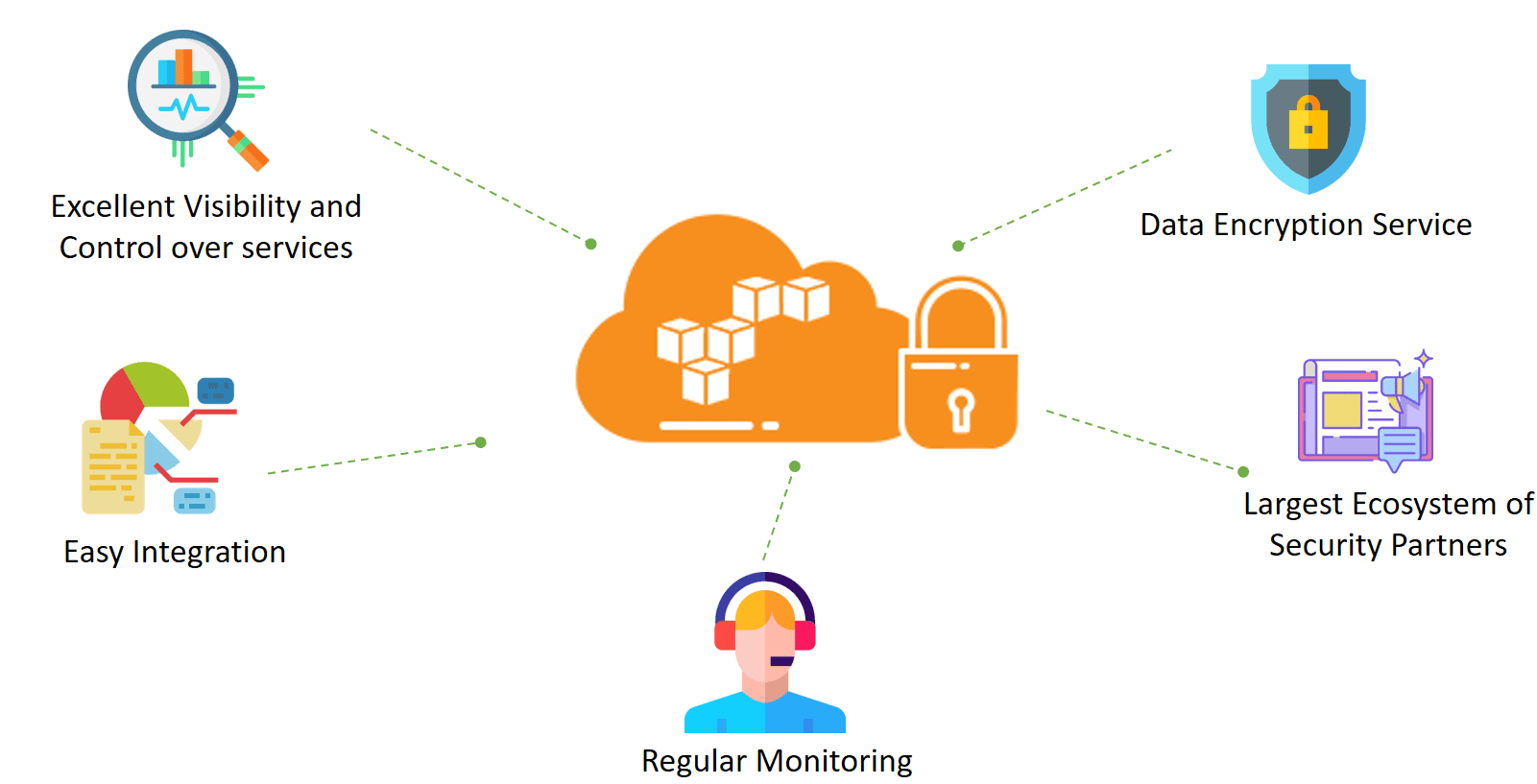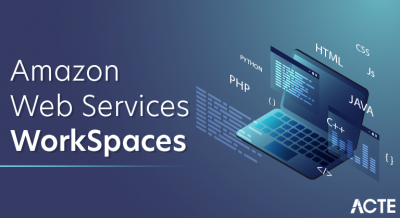
- Introduction to AWS
- History and Evolution of AWS
- AWS Global Infrastructure
- Core AWS Services Overview
- AWS Compute Services (EC2, Lambda, etc.)
- AWS Storage Services (S3, EBS, etc.)
- AWS Database Services (RDS, DynamoDB, etc.)
- AWS Security and Compliance Features
- AWS Pricing Models and Cost Management
- Future of AWS in Cloud Computing
- Conclusion
Introduction to AWS
Amazon Web Services (AWS) is a comprehensive and widely adopted cloud computing platform provided by Amazon. It offers a broad set of cloud services, ranging from computing power to storage options, to cater to businesses and developers of all sizes. AWS allows users to run applications and services on Amazon’s infrastructure rather than investing in physical hardware and data centers. With a pay-as-you-go pricing model, AWS has become one of the most popular and scalable cloud platforms, serving businesses worldwide across various industries—and offering a wide range of Cloud Computing course to support skill development and adoption. As a cloud provider, AWS has revolutionized the IT industry by enabling businesses to deploy applications and scale resources quickly based on demand. AWS also provides services for artificial intelligence (AI), machine learning (ML), data analytics, security, and more. It has become the de facto standard for cloud infrastructure and continues to innovate in the rapidly evolving cloud space.
Excited to Obtaining Your Cloud Computing Certificate? View The Cloud Computing Course Offered By ACTE Right Now!
AWS Global Infrastructure
AWS operates in a global network of Regions, Availability Zones (AZs), and Edge Locations. The AWS global infrastructure is designed to provide customers with scalable, reliable, and low-latency cloud computing services worldwide. Here’s how AWS organizes its infrastructure:
- Regions: AWS divides its global network into geographic areas. An area is a physical location that consists of multiple Availability Zones. AWS has many regions worldwide, allowing customers to deploy resources closer to their users and ensure compliance with local data regulations.
- Availability Zones (AZs): Each region contains multiple Availability Zones, essentially isolated data centers within an area. These AZs are connected by low latency links, allowing users to build highly available applications across multiple AZs while benefiting from regional redundancy.
- Edge Locations: AWS also has a global network of edge locations primarily used for content delivery and caching services (e.g., Amazon CloudFront). These edge locations bring Top AWS Services and content closer to users, reducing latency and improving performance.
By offering this distributed infrastructure, AWS enables customers to deploy their applications globally while ensuring high availability, fault tolerance, and disaster recovery capabilities.

Core AWS Services Overview
AWS offers extensive services that cater to various business needs, from computing and storage to machine learning and artificial intelligence. The core categories of AWS services include:
- Compute: Services that allow you to run virtual machines, containers, and serverless applications.
- Storage: Services to store and manage data, including object storage, block storage, and file storage.
- Database: Managed database services that support relational, NoSQL, and in-memory databases.
- Networking: Tools for setting up secure and scalable networks, including VPC (Virtual Private Cloud), Load Balancer, and Route 53 (DNS).
- Security & Identity: Services like AWS Identity and Access Management (IAM) and AWS Key Management Service (KMS) for securing resources.
- Analytics: Big data services for analyzing large volumes of data and deriving insights using services like Amazon EMR, Athena, and Redshift.
- AI & Machine Learning: A wide range of services for building, training, and deploying Machine Learning Techniques and models using tools like Amazon SageMaker and Rekognition.
- Amazon S3 (Simple Storage Service): S3 is an object storage service that allows users to store and retrieve metadata such as documents, images, videos, and backups. It is designed for durability, scalability, and low-latency access.
- Amazon EBS (Elastic Block Store): EBS provides block level storage volumes for EC2 instances, allowing users to store data with low latency and high throughput. EBS is ideal for databases, enterprise applications, and workloads requiring persistent storage.
- Amazon EFS (Elastic File System): EFS provides scalable, cloud-native file storage that can be accessed concurrently from multiple AWS EC2 Instance. It’s suitable for workloads that require shared access to file-based data.
- Amazon Glacier: Glacier is a low-cost, long-term archiving and data backup storage service. It provides secure, durable storage at a fraction of the cost of other services but with slower retrieval times.
- AWS Identity and Access Management (IAM): IAM enables you to securely manage access to AWS services and resources. It allows you to create users, groups, and roles and define permissions for accessing AWS resources.
- AWS Key Management Service (KMS): KMS is a managed service that allows users to create and control encryption keys to encrypt data across AWS services.
- AWS Shield: Shield protects against Distributed Denial of Service (DDoS) attacks. AWS Shield Standard is included with all AWS accounts, while Shield Advanced provides enhanced protection for critical applications.
- AWS CloudTrail: CloudTrail enables governance, compliance, and auditing by providing logs of API calls on your AWS resources.
- AWS WAF (Web Application Firewall): WAF helps protect web applications from common security vulnerabilities like SQL injection and cross-site scripting (XSS).
- Pay-as-you-go: AWS’s most common pricing model, where users pay only for the resources they use, such as computing, storage, and data transfer.
- Reserved Instances: Users can reserve EC2 instances for a one- or three-year term at a discounted rate, providing cost savings for long-term workloads.
- Spot Instances: AWS EC2 Spot Instances allow users to purchase unused EC2 capacity at a reduced price, making it ideal for non-critical applications or batch-processing tasks.
- AWS Free Tier: The AWS Free Tier provides a limited set of services at no cost to new customers, allowing them to get hands-on experience with AWS services.
AWS Compute Services (EC2, Lambda, etc.)
AWS provides several computing services that allow users to run applications on its cloud infrastructure. Some of the most popular computing services are, Amazon EC2 (Elastic Compute Cloud), EC2 provides resizable compute capacity in the cloud. It allows users to launch virtual machines (instances) and scale them based on workload demands. EC2 provides flexibility in choosing the operating system, instance type, and size, making it a powerful and customizable option for running various applications.AWS Lambda, Lambda is a serverless computing service that lets you run code without provisioning or managing servers. Users can write functions triggered by events, such as changes in data or API calls, and Lambda automatically handles the scaling and execution. This makes it an efficient solution for event-driven applications. Amazon ECS (Elastic Container Service), ECS is a fully managed container orchestration service that allows users to run Docker containers. ECS can be integrated with other AWS services like EC2 or AWS Fargate, which provides container serverless computing. Amazon EKS (Elastic Kubernetes Service), EKS simplifies running Kubernetes clusters on AWS, providing a managed environment for deploying containerized applications.
Ready to Earn Your Cloud Computing Certificate? View The Cloud Computing Course Offered By ACTE Right Now!
How to Use GitHub
AWS offers several solutions for different use cases, including scalable storage, high-performance block storage, and file storage. Some key storage services are:
Interested in Pursuing Cloud Computing Master’s Program? Enroll For Cloud Computing Master Course Today!
AWS Database Services (RDS, DynamoDB, etc.)
AWS offers a variety of managed database services to cater to different database needs, whether for relational databases or NoSQL solutions, Amazon RDS (Relational Database Service), RDS provides fully managed relational databases, including MySQL, PostgreSQL, Oracle, and Microsoft SQL Server. It automates backups, patching, and scaling to ease database management. Amazon DynamoDB, DynamoDB is a fully managed NoSQL database service that performs well at any scale. In a Cloud Computing Course, you will learn how it is optimized for applications that require low-latency data access and can handle millions of requests per second. Amazon Aurora is a high-performance, MySQL- and PostgreSQL-compatible relational database service. It offers up to five times the throughput of standard MySQL and is designed for high availability and scalability. Amazon ElastiCache is a managed caching service that supports Redis and Memcached. It helps improve application performance by reducing the load on databases and providing low-latency access to data.

AWS Security and Compliance Features
AWS Pricing Models and Cost Management
AWS services. AWS also offers cost management tools like AWS Cost Explorer, AWS Budgets, and AWS Trusted Advisor, which help customers monitor and control their spending.
Preparing for Your Cloud Computing Interview? Check Out Our Blog on Cloud Computing Interview Questions & Answer
The future of AWS in Cloud Computing
AWS continues to lead the cloud computing space by innovating and expanding its services. The future of AWS includes Expansion of AI and ML Capabilities, AWS is continuing to advance its machine learning and artificial intelligence services, making them more accessible to developers and data scientists. Hybrid Cloud Solutions, AWS increasingly focuses on hybrid cloud models, enabling businesses to integrate on-premises infrastructure with AWS cloud services. Edge Computing, With the growing demand for low-latency applications, AWS is investing heavily in edge computing technologies, including AWS Wavelength. Sustainability, AWS is committed to becoming more environmentally sustainable, aiming to achieve net-zero carbon emissions by 2040. As cloud computing becomes increasingly integral to business operations, AWS is likely to remain a dominant player in the industry, providing a broad suite of tools to meet customers’ evolving needs.
Conclusion
Amazon Web Services (AWS) has firmly positioned itself as a foundational pillar of cloud computing, empowering organizations of all sizes with the tools and infrastructure needed to innovate, scale, and compete in an increasingly digital world. Through its extensive portfolio of services—including computing power, storage solutions, databases, networking, security, artificial intelligence, and machine learning—AWS provides a flexible and reliable platform tailored to meet diverse business requirements. Its global infrastructure ensures high availability, fault tolerance, and low-latency performance, enabling companies to deploy applications closer to their users while adhering to data governance policies. Additionally, AWS’s commitment to robust security, compliance, and cost transparency has made it a trusted choice for millions of active customers across industries such as finance, healthcare, education, media, and retail as well as a popular platform for Cloud Computing course worldwide. Looking ahead, AWS is not just keeping pace with technological advancements—it is driving them. The platform’s continuous investment in areas like hybrid cloud, edge computing, sustainability, and next-generation AI/ML services reflects its vision for the future. As cloud adoption accelerates, AWS will continue to play a pivotal role in shaping the digital transformation journey of enterprises around the globe. In summary, AWS is more than just a cloud provider it is a comprehensive ecosystem that enables businesses to build smarter, move faster, and operate more efficiently in today’s dynamic technology landscape.


